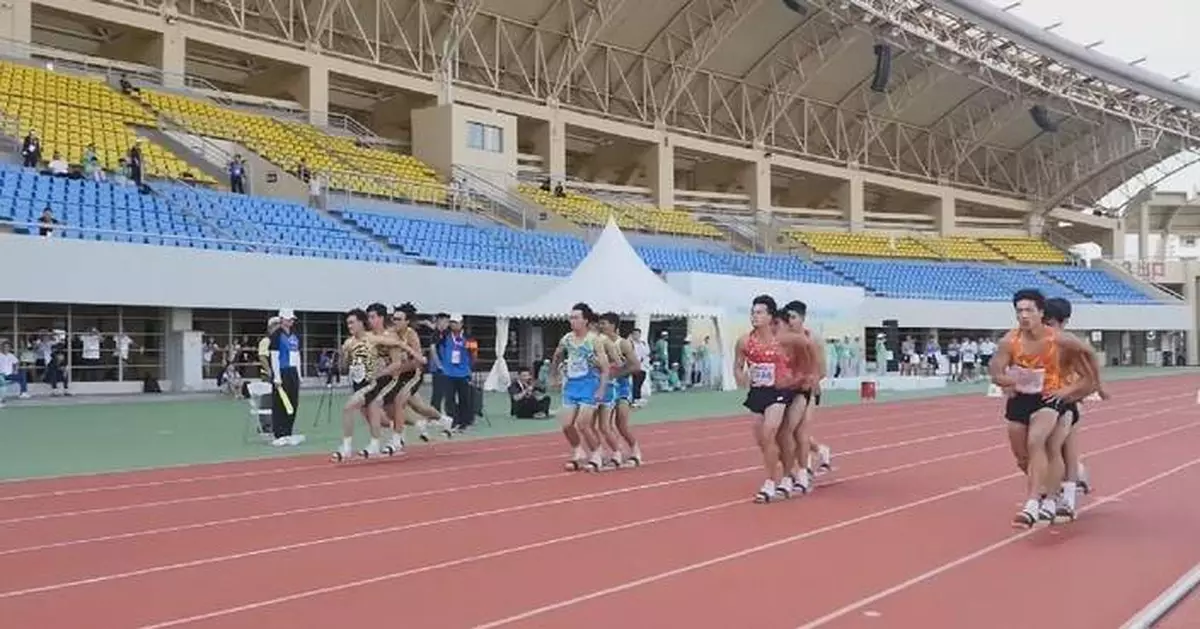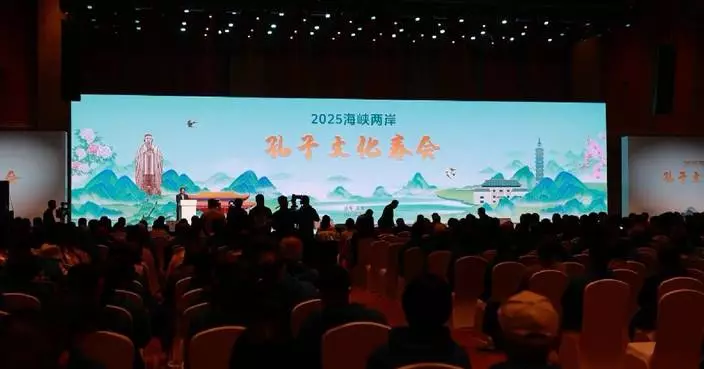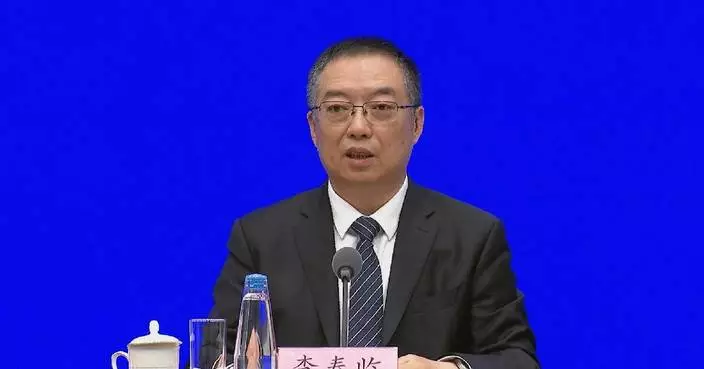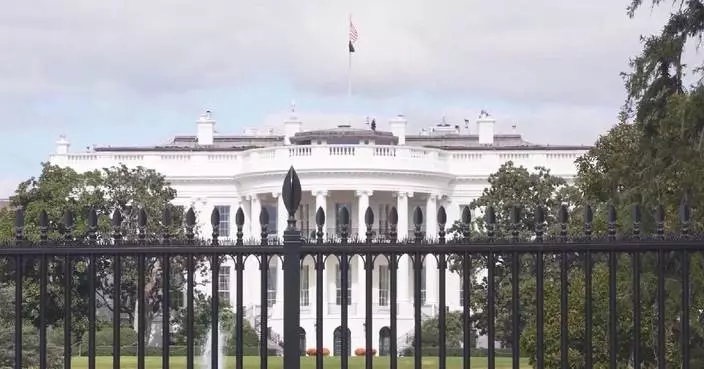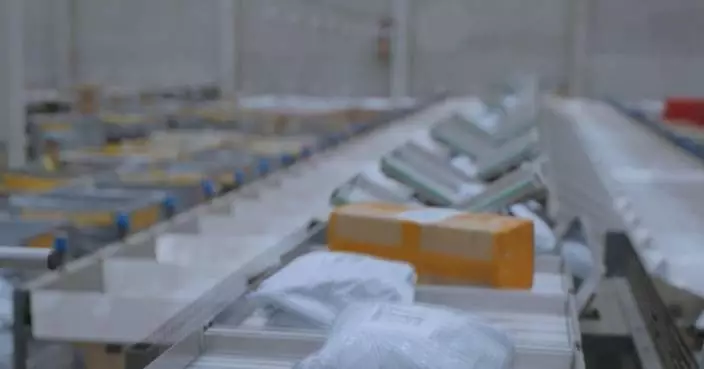The unique sport of board-shoe racing is demonstrating the collaborative spirit and athletic prowess of China's ethnic minorities at the 12th National Traditional Games in Sanya, a coastal city of Hainan Province.
Board-shoe racing is a traditional folk sports event of the Zhuang ethnic group in south China's Guangxi Zhuang Autonomous Region. It pits teams of three athletes wearing a single pair of wooden board shoes against each other.
The interesting sport can be traced back to the Ming Dynasty, when legend has it that a famous heroine used it as a way to train soldiers. It has been passed on from generation to generation since then, and has grown in popularity, attracting participants from northern provinces as well.
The sport was introduced as an official competition event in the 8th National Ethnic Games in 2007 for the first time. The event includes men's and women's three-member 60 meters, 100 meters, 200 meters racing, and 2×100 meters relay, as well as 4×100 meters mixed relay.
This year, a total of 30 board-shoe racing teams of 348 athletes from different ethnic minority groups will compete in the 12th National Ethnic Games. Athletes say the sport requires perfect coordination of the trio and concentration of each member.
"We're like a train. The member at the front is relatively more capable than the two members at the back because the locomotive drives the train faster, which is what our coach tells us. As for the two of us in the back, the person in the middle is responsible for coordination between the front and back, and the one at the end controls the forward movement of the board and the up and down movement of our legs. Each of us has our own function," said Liu Yilin, a member of Chongqing board-shoe racing team.
This seemingly simple sport actually has many challenges. The athletes need to ensure tacit cooperation while running at full speed to prevent slipping out of the shoes or even toppling over each other.
Liu and his teammates made a mistake in the middle of the heat, which resulted in Liu's ankle injury. But these athletes got back on their board shoes to finish the race.
"At that time, we were still trying to finish the game. I guess one of my nerves might have been injured, so half of my foot was numb. But I still insisted on putting my feet into the board shoes. We were determined to finish the race. I told my teammates that we should persist in the competition and respect the event and the process," said Liu.
Opened on Friday night, the grand event, which will take place through Nov 30, has gathered nearly 7,000 athletes, representing 35 delegations across China to compete in 18 sports and three demonstration sports, most of which were once unique to specific ethnic groups or regions.
Unlike modern sporting events, the ethnic games feature competitions rooted in traditional customs and the daily life of people of different ethnic groups in China.
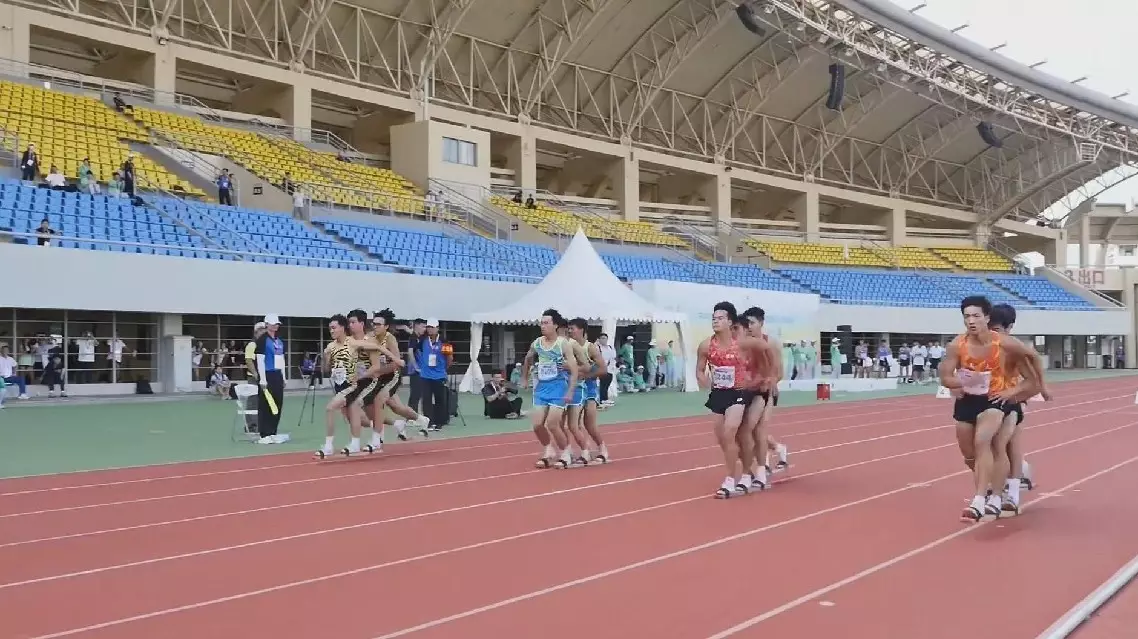
Chinese traditional board-shoe racing highlights collaborative spirit
Amid growing concerns over the Trump administration's tariff policies, experts have warned that these measures could spark countermeasures from other countries and have serious consequences for the country's economy, including rising consumer prices, stock market volatility, and even a recession.
Despite widespread opposition, U.S. President Donald Trump on Wednesday signed an executive order on the so-called "reciprocal tariffs," imposing a 10-percent "minimum baseline tariff" and higher rates on certain trading partners.
While Trump has long argued that tariffs would protect and create jobs in the country, economists widely believe that these policies could instead drive up unemployment and hurt consumers by pushing prices higher.
"In terms of the idea that this is just going to raise a lot of money, it's not clear how that happens without it being at the the cost of the U.S. consumer and some producers as well. Prices are going to go up for everybody. There will be job losses, probably," said Katherine Schmeiser Lande, professor of economics at Mount Holyoke College, in an interview with China Central Television (CCTV) recently.
Experts also noted that as the U.S. enforces its tariff measures, other nations are likely to respond with countermeasures, and this could hit U.S. exports, particularly farm products like soybeans, which heavily rely on foreign markets.
Ultimately, they warned, such policies could harm U.S. farmers and businesses.
"It might lower the price for U.S. consumers, but we can't necessarily absorb all that excess. So this could be really problematic for farmers, and it could lead to a situation where they actually need government subsidies, which is a whole other issue," said Lande.
The stock market has already reacted sharply to tariff-related uncertainty.
In March, the indexes of Nasdaq and Standard and Poor 500 fell 8.21 percent and 5.75 percent, respectively, their worst monthly declines since December 2022.
Economists warn of further volatility as trade tensions continue to weigh on investor confidence.
Meanwhile, Goldman Sachs recently released a report stating that as U.S. tariff policies disrupt global trade and financial markets, the likelihood of a recession in the U.S. within the next 12 months has risen to 35 percent.
Since protectionism is at the heart of Trump's foreign policy, Malgorzata Bonikowska, president of the Center for International Relations in Poland, stressed that Europe will not bow to U.S. pressure, believing that the continent will respond firmly to its aggressive tariff measures.
"European Union does not want any trade war. We support World Trade Organization. We support multilateralism. So we don't like this approach of Trump administration and we regret. But if Trump pushes us, then we will look around. We have to do trade with other partners as well. So, it's not only the U.S. which is our trade and investment partner. We regret, but we definitely will not be weak in this regard," she said in another recent CCTV interview.

US “reciprocal tariffs” to harm itself, incur countermeasures: experts



